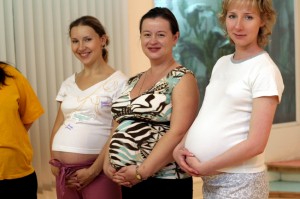 Vaginal birth after cesarean (VBAC) is the delivery of a baby through the vagina after a previous cesarean delivery. For most of the 20th century, clinicians believed that once a woman had undergone a cesarean, all of her future pregnancies required delivery by that procedure as well. In the 1980s, vaginal birth after cesarean (VBAC) also began to be considered a viable option for these women. Since 1996, however, VBAC rates in the United States have consistently declined, while cesarean delivery rates have been steadily rising. What accounts for these changing practice patterns? An improved understanding of the clinical risks and benefits of both procedures, and how these risks interact with legal, ethical, and economic forces to shape provider and patient choices about VBAC, may have important implications for health services planning and informed decisionmaking.
Vaginal birth after cesarean (VBAC) is the delivery of a baby through the vagina after a previous cesarean delivery. For most of the 20th century, clinicians believed that once a woman had undergone a cesarean, all of her future pregnancies required delivery by that procedure as well. In the 1980s, vaginal birth after cesarean (VBAC) also began to be considered a viable option for these women. Since 1996, however, VBAC rates in the United States have consistently declined, while cesarean delivery rates have been steadily rising. What accounts for these changing practice patterns? An improved understanding of the clinical risks and benefits of both procedures, and how these risks interact with legal, ethical, and economic forces to shape provider and patient choices about VBAC, may have important implications for health services planning and informed decisionmaking.
An impartial, independent, Consensus Development Conference panel will hold a press telebriefing to discuss their findings and implications for the public following the NIH Consensus Development Conference on Vaginal Birth After Cesarean (VBAC): New Insights, March 8-10, 2010. The panel’s statement will incorporate their assessment of the available evidence from a systematic literature review, expert presentations, and audience input to inform patient and provider decisions regarding VBAC.
This blog site will post a summary once the guidelines are released.

Comments